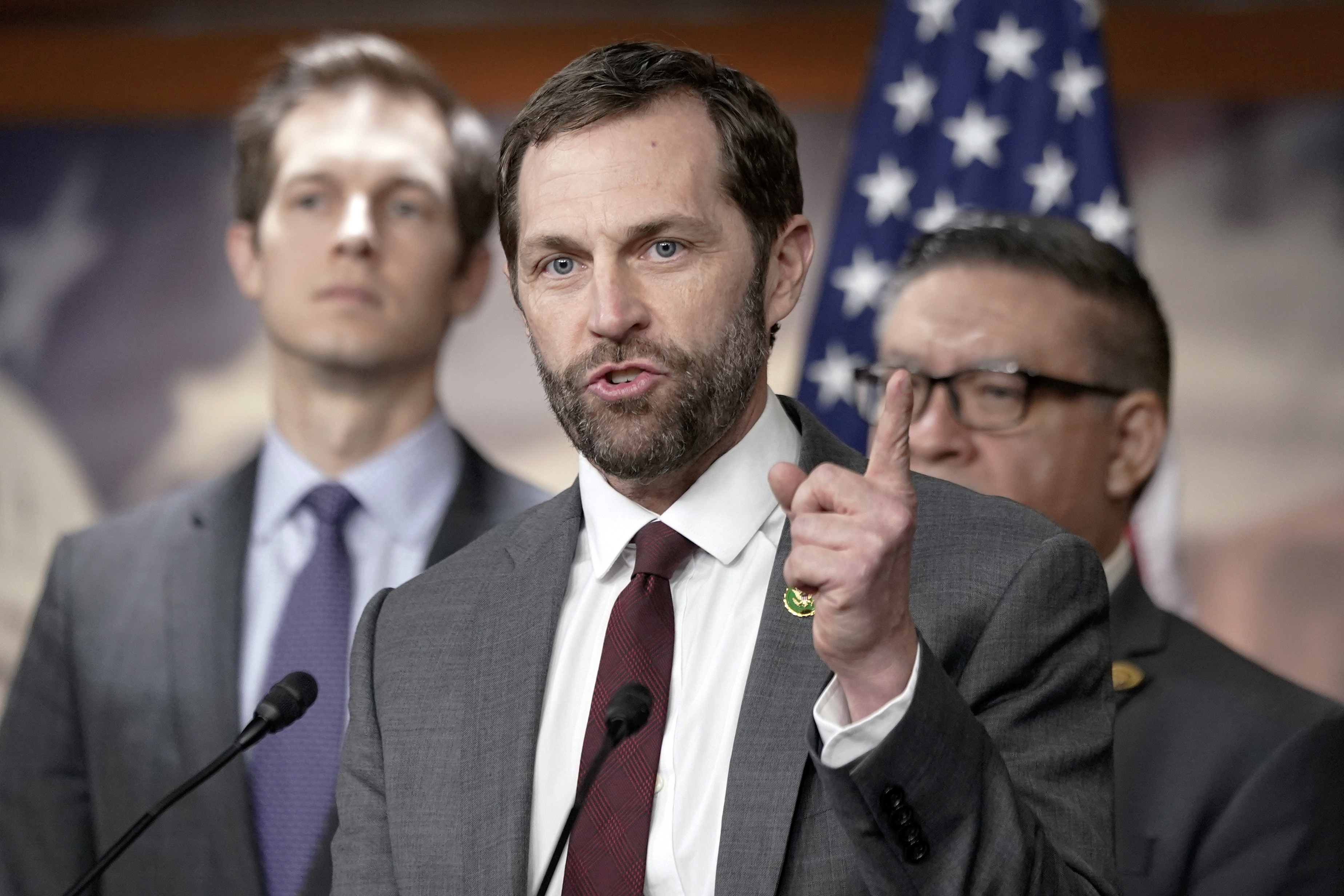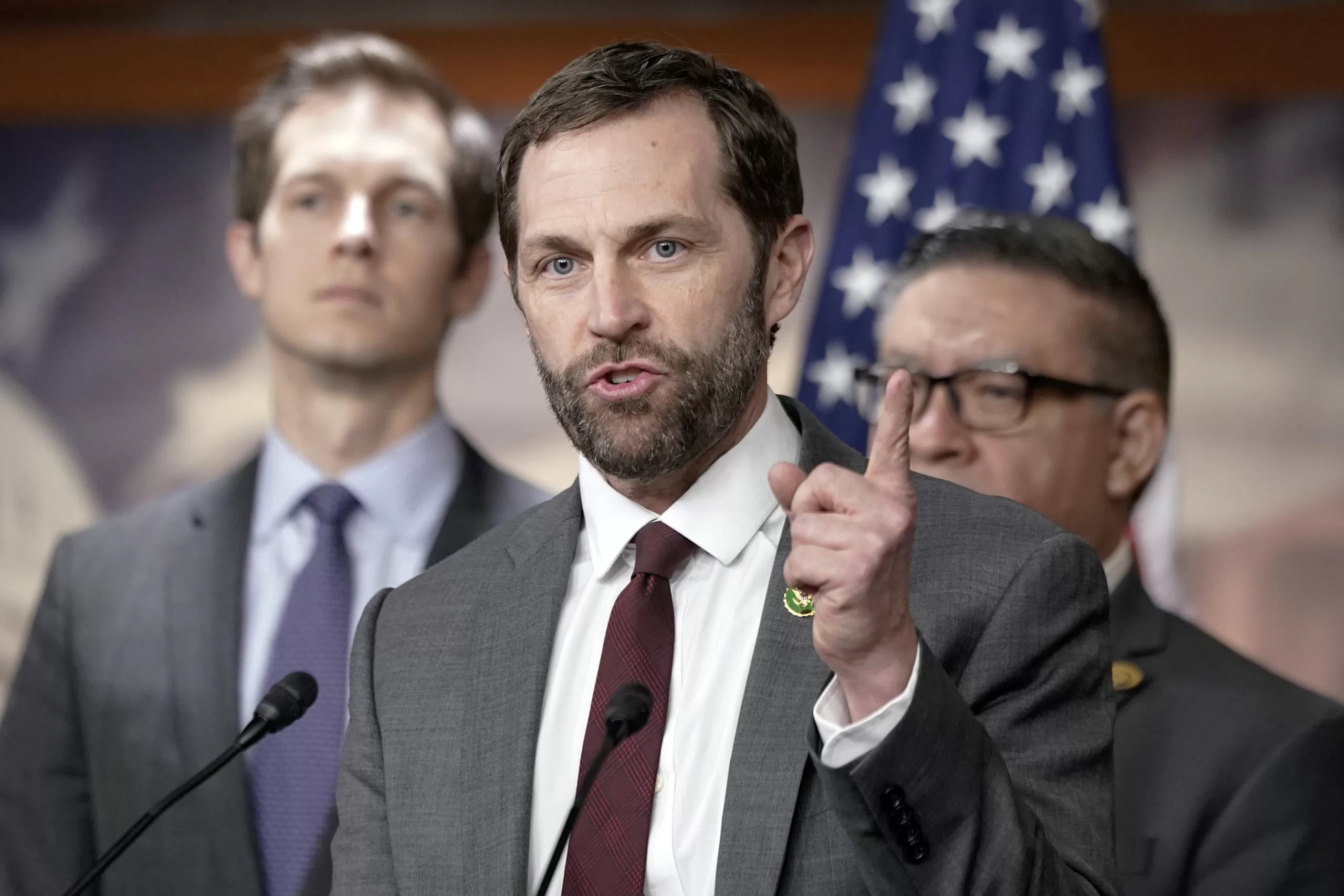
And on Capitol Hill, Navalny’s death spurred calls from top lawmakers to finally pass tens of billions in stalled Ukraine aid. A bipartisan group of House lawmakers unveiled a new emergency spending bill that would grant over $47 billion to assist Ukraine, placing renewed pressure on Republican leaders to finally hold a vote on an aid package.
The series of rapid-fire moves came as the international community reeled from Russia’s announcement Friday morning that Navalny, the prominent critic of Putin imprisoned after a botched assassination attempt in 2020, had died suddenly in a Siberian penal colony.
Despite the fresh attention and urgency on passing Ukraine aid, it’s unclear whether it will move the hardliners who insist that tackling the border crisis should be the priority.
“Perhaps I get more fired up about what’s going on in America not because I believe it’s worse than Russia or any other country, but because it’s my home,” Sen. J.D. Vance (R-Ohio) posted on social media.
The Senate on Tuesday passed a $95 billion foreign aid package for Ukraine, Israel and Taiwan. Despite a big bipartisan vote there, the bill has hit a roadblock in the House as Speaker Mike Johnson has quashed a vote on the measure. Instead, he is advocating for border security measures to be added after GOP senators forced a border deal out of the bill.
The Pentagon is arguing that the costs of inaction on Ukraine far outweigh the price tag of any foreign aid bill.
In a bid to highlight the effectiveness of U.S. military aid and break the Capitol Hill impasse, reporters were called in to hear from a senior Defense Department official, who estimated Putin’s nearly two-year-long invasion has cost Russia roughly $211 billion and has erased a staggering $1.3 trillion in its economic growth through 2026.
The full-on invasion of Ukraine has also resulted in Moscow losing over $10 billion in arms sales that have either been canceled or postponed, and killed or wounded 315,000 Russian troops, added the official, who was granted anonymity to discuss the internal dynamics of the latest meeting of the Ukraine Defense Contact Group with reporters.
But the official pointed to Russian advances near the city of Avdiivka amid ammunition shortages for Ukrainian troops, a crisis that will only worsen without more funding soon from Congress.
“We do see that Ukrainians are running short on critical supplies, particularly ammunition, and we see this as something that could be the harbinger of what is to come if we do not get this supplemental funding,” the official said. “Without supplemental funding … we also will find many other locations along the forward line of troops that will be running low on supplies, on critical ammunition.”
The Pentagon said in late December that it had run out of money to continue sending military aid to Ukraine. Although weapons paid for through previous contracts with industry are continuing to trickle into Ukraine, the U.S. can no longer send equipment directly from DOD’s inventories because it has no more funding to replenish its own stocks, U.S. officials have said.
For Ukraine advocates on the Hill, Navalny’s death underscores the need to stop Putin’s expansionist aims and to finally break the logjam over new funding.
“We must continue to stand with the Ukrainian people as they fight every day against Russia’s brutality for their right to exist, which is why I continue to call on Speaker Johnson to end the political games and pass the urgently needed supplemental,” said Rep. Gregory Meeks of New York, the top Democrat on the House Foreign Affairs Committee. “The U.S. must use all the tools we have to hold Putin, his regime, and all those who have played a part in Alexei Navalny’s death accountable.”
House Minority Leader Hakeem Jeffries chided Republicans for holding up assistance, arguing in a statement that Navalny’s death marks “a time to choose.”
“The House must stand with the Ukrainian people in their courageous fight against Russian aggression. Those who do not risk forever being tarred in history as accomplices to Putin’s tyrannical regime,” Jeffries said. “The bipartisan national security legislation must be brought to the floor for an up or down vote immediately.”
“One way to punish Putin for killing Navalny?” Rep. Jason Crow (D-Colo.)
added on social media. “Pass the National Security Supplemental so the Ukrainians can destroy the rest of Putin’s army.”
In a statement, Johnson said the U.S. and allies “must be clear that Putin will be met with united opposition,” though he did not explicitly commit to a vote on new Ukraine aid.
“As Congress debates the best path forward to support Ukraine, the United States, and our partners, must be using every means available to cut off Putin’s ability to fund his unprovoked war in Ukraine and aggression against the Baltic states,” Johnson said.
But the speaker now faces new bipartisan pressure to act after a bipartisan crew of House lawmakers on Friday unveiled a $66 billion alternative proposal.
Under the draft compromise plan released Friday and spearheaded by centrist Rep. Brian Fitzpatrick (R-Pa.), $47.7 billion would be allocated to assist Ukraine and replace U.S. weapons sent into the fight against Russia. The measure, cosponsored by four Republicans and four Democrats, provides only military funding for Ukraine, Israel and Taiwan, dropping the humanitarian aid from the Senate version.
It also includes border security provisions favored by Republicans aimed at flipping GOP lawmakers who contend the U.S. shouldn’t approve more Ukraine funding without addressing the migrant crisis at the U.S.-Mexico border.
House Foreign Affairs Committee Chair Michael McCaul of Texas, a Ukraine supporter, said Congress ought to pass a supplemental in March to help Kyiv with a planned counteroffensive in April — and that he anticipates Johnson to work in that timeframe.
Joe Gould contributed to this report.
